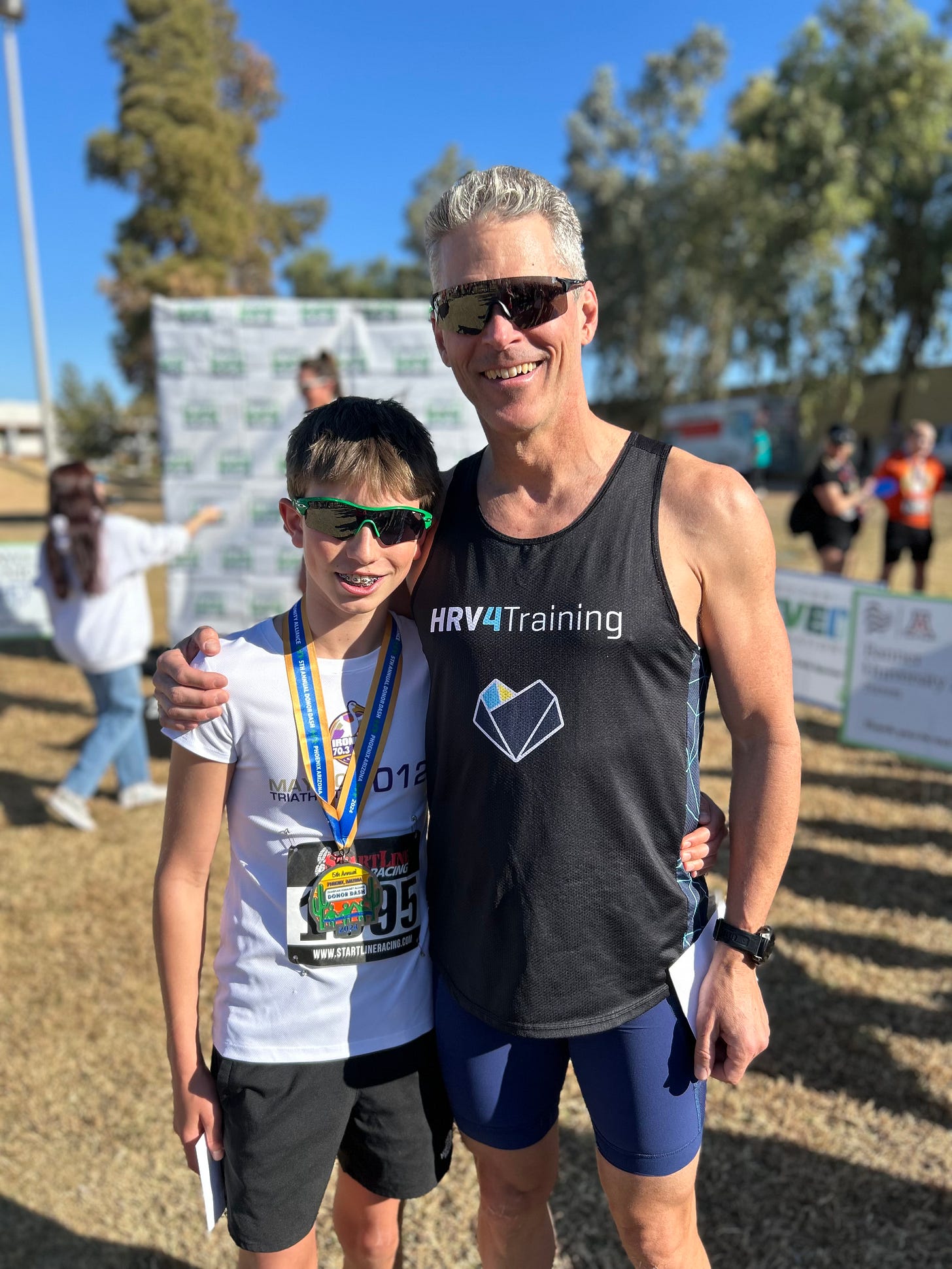
One of my favorite follows is Simon Saris. He’s here on Substack as well as over on X. His takes on marriage, education and fatherhood are great. If you’re looking for a framework around which to build a life with meaning, his feed is great.
The time will pass regardless.
In 2000, I left full-time work in the corporate world. I quickly learned that my capacity to experience joy in everyday living was the best measure of my life. In my early-30s, this was a shock and a revelation.
If I found myself irritated, I’d take it as a sign that something was out of whack. Either too much stress, or I was spending my time unwisely.
I had a good run from 2000-2010 where my everyday living was fantastic and, in turn, I was joyful. Mostly internally, but it would spill out when I exercised with friends. I made lifelong friends in this period by sharing joy with them. An endurance athlete’s experience of joy will appear bizarre if you’re outside our subculture. It’s a mixture of camaraderie, shared suffering and opening to experience (usually of the natural world).
Last week’s article was an indirect message about joy. I asked you to consider if there might be a price to pessimism. From the inside pessimism may feel objective, justified, realistic and reassuring. Our habits feel comfortable, even when they prevent us from getting what we desire. To get to a better place, we will need to deal with the discomfort of change.
Two weeks ago, I ended the article noting depressive behavioral choices can be rational. Depressive choices lead to misery. Misery separates us from the joy of everyday living.
If you’ve lost joy in your life, it’s not a permanent condition. It’s why I asked you about the last time you felt optimistic. Think back to that optimistic period, what else was going on during that period? What were the choices you were making?1
Do you ever think about your peak experience years? In 2016, I wrote about The Blue Flame Years, these are the years where we burn the brightest.
When looking back, it is tempting to think joy was a result of youth, a massive workload or another metric that’s no longer available. A belief that past success is no longer available is a nasty form of pessimism. It’s also incorrect.
What I needed to learn from those years was my joyful choices. What are the choices, done regularly, that enable me to see the joy in everyday living. What are the activities that, and people who, make me laugh out loud?
Choosing more of those activities has been a proven way to boost joyful feelings.
As we move into 2025, that could be a resolution for you.
My online writing goes back to the 1990s. When I ask myself these sorts of questions, I can reread exactly what I was thinking. I’ve learned not to trust my memory.



